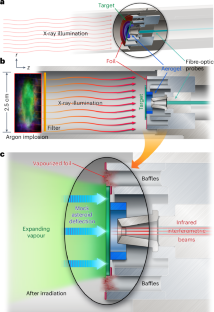2024-09-23 バーミンガム大学
<関連情報>
- https://www.birmingham.ac.uk/news/2024/human-urine-could-be-used-as-eco-friendly-crop-fertiliser
- https://www.sciencedirect.com/science/article/pii/S0929139324002026
人尿施肥が土壌細菌群集に与える影響を解明 持続可能な肥料化への道 Unveiling the impact of human urine fertilization on soil bacterial communities: A path toward sustainable fertilization
Manon Rumeau, Chiara Pistocchi, Nassim Ait-Mouheb, Claire Marsden, Brigitte Brunel
Applied Soil Ecology Available online: 9 June 2024
DOI:https://doi.org/10.1016/j.apsoil.2024.105471

Highlights
- After storage, urine microbiome was depleted but still had few common urine bacteria.
- Urine fertilization did not affect the overall soil bacterial community structure.
- Urine fertilization increased the abundance of nitrifying and denitrifying groups.
- No bacterial salt stress was induced despite high urine salt concentration.
Abstract
Using human urine as a crop fertilizer has sparked interest due to its potential benefits, but its application requires an understanding of how urine can affect soil functions and microbial communities. This study aims at elucidating the response of soil bacterial communities to fertilization with human urine. To this end, a spinach crop was fertilized with 2 different doses of a source-separated and stored human urine (170 kg N ha−1 + 8.5 kg P ha−1 and 510 kg N ha−1 + 25.5 kg P ha−1) and compared with a synthetic fertilizer treatment (170 kg N ha−1 + 8.5 kg P ha−1) and a water treatment without fertilization. The experiment was conducted in four soil tanks in greenhouse conditions, according to a randomized block scheme. We assessed urine and soil bacterial composition at the beginning and the end of the experiment that we compared to soil and plant properties to understand the drivers in bacterial composition changes. After 12 months of storage, urine had a depleted microbiome but still contained few common strains of urine or faeces. Overall, soil bacterial communities were resistant to urine fertilization with only 3 % of the taxa impacted. However, urine fertilization increased the relative abundance of nitrifying and denitrifying groups compared to the synthetic fertilizer implying that more N2O and NO could be emitted when fertilizing with urine. The urine’s high salt concentration had little discernible effect on the bacterial community. In a broader context, this experiment provides evidence that one-year-stored urine can be applied to a plant-soil system without negatively impacting soil bacterial communities in the short term.



